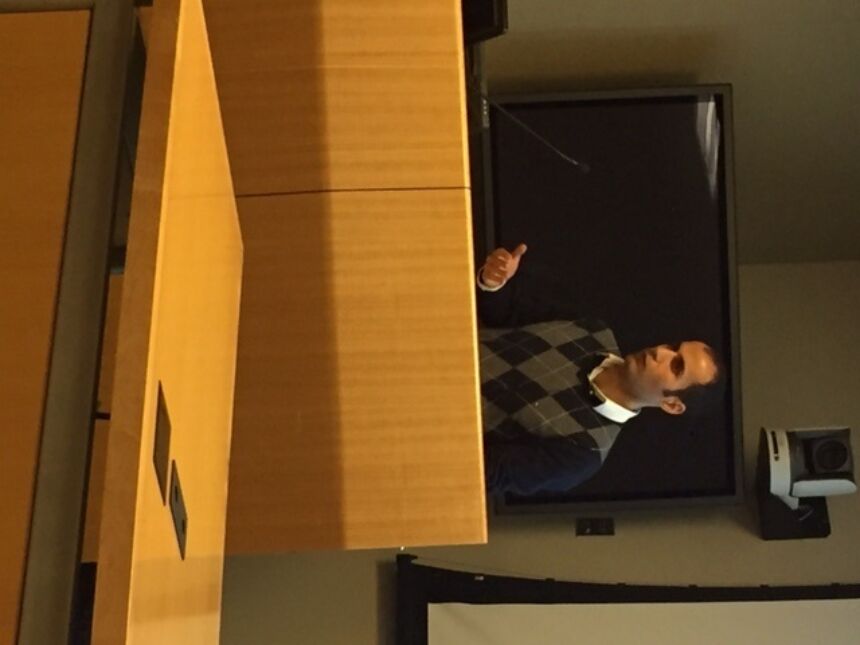April 07, 2016
Energy economist shares research on CO2 storage, fracking

UNIVERSITY PARK, Pa. – Speaking March 30 at the Penn State School of International Affairs, energy economist and Penn State postdoctoral researcher Farid Tayari presented his research on the technological and economic feasibility of carbon dioxide storage in the depleted unconventional Shale gas reservoir, in order to reduce the industrial carbon dioxide emission. Tayari’s talk, "Techno-economic Assessment of Industrial CO2 Storage in Depleted Shale Gas Reservoirs," was part of SIA’s academic seminar series, which brings leading scholars to the school to share their research with students and faculty.
Taryari shared his model for capturing carbon dioxide from power plants, where the gas is highly concentrated, transporting it to injection sites to be permanently stored in deep underground depleted Shale gas formations, and then storing it. According to Taryari, his model could contribute to a net reduction in carbon dioxide emissions as well as potential of providing additional benefits in gas extraction.
Tayari cautions, however, that the profitability of his model will ultimately determine whether it’s a possibility. While his research includes cost projections for every stage of the model, and also takes into account financial factors like gas prices and CO2 tax credits, he said the results of the economic analysis are stochastic and they depend on the distribution of major inputs. Results can be used for carbon management policy analysis.
Tayari is currently working as a postdoctoral researcher in Penn State’s Department of Energy and Mineral Engineering. He holds a Ph.D. from Penn State in Energy Management and Policy, an M.B.A. from the University of Tehran, and a B.S. in Chemical Engineering from Sharif University.
